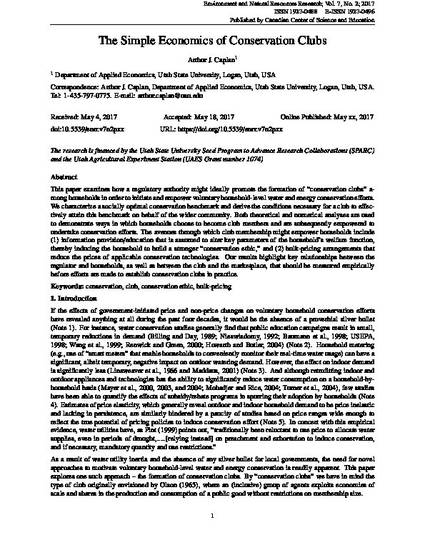
Article
The Simple Economics of Conservation Clubs
Environment and Natural Resources Research
(2017)
Abstract
This paper examines how a regulatory authority might ideally promote the formation of “conservation clubs” amonghouseholds in order to initiate and empower voluntary household-level water and energy conservation efforts. We characterize a socially optimal conservation benchmark and derive the conditions necessary for a club to effectivelyattain this benchmark on behalf of the wider community. Both theoretical and numerical analyses are used to demonstrate ways in which households choose to become club members and are subsequently empowered to undertake conservation efforts. The avenues through which club membership might empower households include (1) information provision/education that is assumed to alter key parameters of the household’s welfare function, thereby inducing the household to build a stronger “conservation ethic,” and (2) bulk-pricing arrangements that reduce the prices of applicable conservation technologies. Our results highlight key relationships between the regulator and households, as well as between the club and the marketplace, that should be measured empirically before efforts are made to establish conservation clubs in practice.
Keywords
- conservation ethic,
- bulk-pricing,
- conservation,
- clubs
Disciplines
Publication Date
Summer May 15, 2017
Citation Information
Arthur Caplan. "The Simple Economics of Conservation Clubs" Environment and Natural Resources Research Vol. 7 Iss. 2 (2017) p. 112 - 130 ISSN: 1927-0488 Available at: http://works.bepress.com/arthur_caplan/125/
